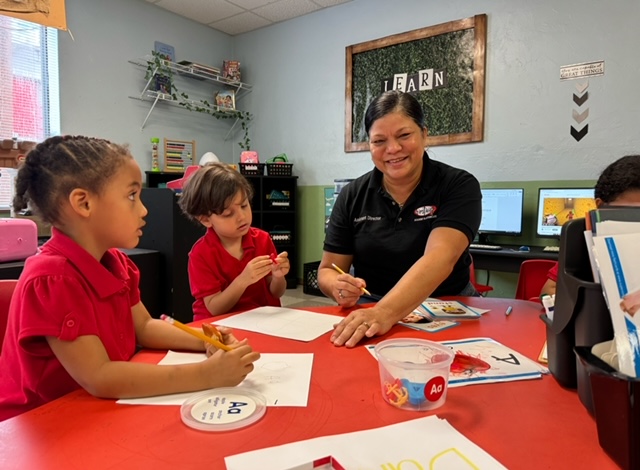Florida is home to the third largest population of Hispanics, Latinos. In a recent survey of Florida Latino voters by UnidosUS 2024, Democratic presidential nominee Kamala Harris(47%) leads Republican Donald Trump (42%).
“I see a pattern between Bush and Trump,” Gonzalez said. “It’s not fair what they were doing years ago and now. I understand there is a lot of crime with immigrants, but they’re blaming it all on Latins. They’re all being lumped together. Just like we have good Americans and bad Americans, it’s the same with Latins. I’m bilingual, so I see both sides, but you can’t blame Latin immigrants for everything.”
As of 2021, more than 4 million immigrants lived in Florida, about 21 percent of the state’s total population, which is higher than the national average.
The younger generations may not remember the 2000 election controversy, but history books will surely never forget it. Florida played a critical role in deciding the presidential outcome between Texas Gov. George W. Bush and Vice President Al Gore that year. Bush won by a mere 537 votes in Florida following an intensive vote recount that ended with a controversial landmark ruling by the Supreme Court.
Gonzalez said this year’s election between former President Donald Trump and Vice President Kamala Harris is just as important as that historic 2000 election. Florida has 3.5 million Latino-eligible voters, per the Pew Research Center, the third largest population of Hispanics, Latinos in the country. In a recent survey of Florida Latino voters by UnidosUS 2024, Harris leads Trump, 47 percent to 42 percent.
“If I don’t vote, I don’t have a voice. That’s what’s driving me to vote. It’s important to have a voice for the people that don’t have a vote,” Gonzalez said.
A global perspective in education
If you spend a day with Gonzalez, you will quickly observe how she leads and guides a mini United Nations.
As assistant director of the preschool and after-school program for First United Methodist Church in downtown Fort Lauderdale, she is surrounded by infants, toddlers, and kids from all over the globe. The preschool has students from Ukraine, Italy, Mexico, Lebanon, France, Haiti and more. It’s a melting pot of cultures.
Nearly 20 percent of Fort Lauderdale’s population is Hispanic, reports Data USA.
Gonzalez, who was born in Puerto Rico and moved to Florida in 1990, sees the importance of diversity on a daily basis. She knows every action today will lead to a reaction in the future. “We see children now in high school or college come back to us and say thank you,” she said. “They had their first level of reading here, and now they’re in college. This [school] plants the seed.”
So, what is the key to raising successful children who advance in education? Gonzalez believes it all comes down to reading to your children now. “When you read a book, a simple book or simple pages, they can create and use their imagination,” she said. “Even if they only see pictures or three words. It plants the seeds for them to learn. Reading at home helps with their reason and comprehension. I always recommend it.”
US News & World Report recently ranked Florida No. 1 in education. The ranking was driven by metrics in higher education and by the state’s prekindergarten through 12th-grade performance. Preschool education in Florida ranked 12th on the national scale.
Gonzalez partially credits the state’s higher rankings to the state’s free Voluntary Prekindergarten Education Program, also known as VPK. The program, started in 2005, gives 4-year-olds access to early education regardless of family income.
She said the state’s free early education program is a model for others to adopt. She believes this investment in early education will reap benefits over the long term, as Florida already sees.
“VPK has been a good thing because it’s giving 4-year-olds the foundation that they didn’t get before,” she said. “Before VPK, these kids were just at home. It was just babysitting. But now, we are teaching these kids. It’s educational. It’s free for three hours, and these children are interacting with other children. It’s beneficial for everyone.”
And it appears she’s not alone in that thinking. Education is also among the top 10 issues for Latinos, per a national survey conducted by UNIDOS US.
Cover Photo: Maira Gonzalez works with students in the preschool and after-school program associated with First United Methodist Church in Fort Lauderdale, Fla. (Credit: Mark Macias)
Mark Macias, a former journalist with NBC and CBS, owns the public relations agency Macias PR. He lives in South Florida with his wife and two children, ages 4 and 1.
Publisher’s Notes: Why toddlers are motivating an early school educator to vote was first published in The Fulcrum and republished with permission.
Part of LNN’s mission is to amplify the work of others in providing greater visibility and voice to Hispanic, Latino communities.
